Our stress-threshold is increased by exercise and even slows down the aging of our bodies. Repeat: Exercise slows down the aging of our bodies!! Just making sure you got that. A higher stress-threshold means you can deal with stress more effectively. While sitting at your desk all day, remember to simply stand up and walk around. Never sit longer than 60 minutes at a time. If you can get up and walk around every 20 to 30 minutes, you most likely will feel the difference in doing that one simple thing more often. Increased blood flow to the muscles and to the brain translates to increased energy, focus, and alertness. During evolutionary times, man walked anywhere from 6-12 miles per day searching for food just to survive. Today we do so much sitting – in front of our computers, our TVs, and in our cars – we have to incorporate ways to move to stay healthy and perform optimally.
Here are 7 ways you can add more movement to your daily routine:
- In addition to getting up out of our chairs, take it one step further by incorporating chair squats in your day. Start by standing up off your chair and then sitting back down. Do this 10 times – easy and effective. It may feel silly at first, but it’s a fantastic way to build leg strength, improve balance, increase circulation, and get energized. See if you can do 10 repetitions three times throughout your day. Increase it to 10 repetitions every hour, or add on 5 more repetitions per cycle – you get the idea, change it up as you wish, but just do it. Make it harder by barely sitting down before you stand up again.
- Do you have stairs at your office? Use them! Not ready for several flights in a row? Do one flight every day this week, and two flights next week.
- Go for a brisk 10-minute walk, and then go for a second one later in the day. Remember, our DNA is programmed for much more.
- In the morning when you first wake up, get down on the floor and do some push-ups. Straight leg or bent knee, commit to 10 repetitions to begin with and add more as you get stronger. Make it a daily habit.
- After your push-ups, turn over and lie on your back and do 10 crunches. Your basic set of crunches is very effective for the entire abdominal region. A new study by the American Council of Exercise tested all the various machines and tools to target the abs, and the basic crunch still scores as high or higher than fancy gadgets you have to purchase.
- Add some stretches to get your circulation going.
- Perform a circuit of 10 chair squats, 10 push-ups, and 10 crunches in your morning. Repeat all or any of these whenever you can throughout your day.
Eating Habits and Nutrition
You may be turning to food, healthy or not so healthy, to deal with the stress of your daily life. Stress has been shown to cause people to consume more calories and especially crave sweet and fatty foods. Stress can also cause us to grab the nearest brownie or potato chip bag out of habit. We remember it made us feel better in the past so we reach for that again. You can change this habit by making a new association. It could be a better food choice, or it can even be an activity – whatever works to break that association and create a healthier substitution. Don’t rely on willpower, it will only work for so long before you give in. Instead, decide on healthy substitutions ahead of time so you are prepared when the urge hits.
- Make mindful food choices and limit high sugar and processed foods.
- Choose brightly colored fruits and vegetables. Focus on getting 5-9 servings daily.
- Eat high quality protein, nuts, and whole grains.
- Drink green tea and water throughout the day to keep you hydrated and alert.
When you do sit down to eat a meal, eat it mindfully and chew slowly. Too many times we hurry through our meals, not paying attention to our food. Perhaps you’re working at your desk through lunch and reading emails. Stop and give yourself a few minutes to focus only on eating. Chew slowly and really taste and enjoy the many wonderful favors, textures, and the smells of your food. You will not only reduce your stress level, but you will feel more satisfied with your meal. Focusing on chewing your food and paying attention as you eat forces your mind to slow down the entire eating process. You may find you don’t even eat as much and feel more full on less food.
Sleep
Both exercise and a high-nutrient diet go a long way in helping you manage stress, and will also improve other areas of your life such as sleep. If you’re feeling stressed, your sleeping patterns and quality of sleep will likely be affected.
- Aim for a minimum of 7.5 hours of sleep. Not sleeping enough has been linked to bigger waistlines.
- Reduce or even avoid caffeine in the late afternoon/evening. Caffeine begins to affect your body very quickly and reaches a peak level in your blood within 30 to 60 minutes. Its half-life is 3 to 5 hours. The half-life is the time it takes for your body to eliminate half of the drug. The remaining caffeine can stay in your body for as long as 8-14 hours.
- Limit alcohol. It may initially sedate you, making it easier to fall asleep, but as your body metabolizes it, it can cause arousals that disturb your sleep and have you waking up feeling groggy and unrefreshed.
- Sleep in a completely dark room and minimize light from windows as much as possible.
- To regulate your sleep-wake cycle, increase light exposure production by introducing light into your home/workspace as much as possible. Keep curtains and blinds open during the day, and if possible, move your desk closer to the window. Go outside, or take a walk during the day in the sunlight. To boost melatonin at night, turn off your television and computer. Many people use the television to fall asleep or relax at the end of the day – this is a mistake. Not only does the light suppress melatonin production, but television can actually stimulate the mind, rather than relaxing it. Backlit devices such as iPads and cell phones fall into this group as well. Try some relaxing bedtime rituals such as reading a book or magazine, taking a warm bath, listening to soft music, or making simple preparations for the next day.
Small steps bring big rewards. Improving your quality of life will not only help you through a busy day, busy week, or busy month, but it will also establish healthy and life-expanding habits for your future. You will feel vitalized and happier, and a better you will radiate out to everyone you come in contact with – and that’s a stress-less life worth working toward.
Supporter of your health,
Irene







